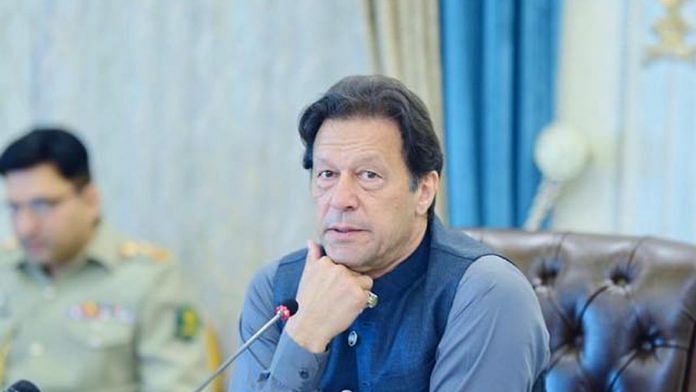 The new capitalism: In the foreseeable future, politics will drive economic policies, not market-based rationality
The new capitalism: In the foreseeable future, politics will drive economic policies, not market-based rationality
Ashutosh Varshney | Director, Center for Contemporary South Asia, Sol Goldman Professor of International Studies & Social Sciences
The Indian Express
Varshney argues that “political winds” will dictate economic issues. He adds that the anger against China for its handling of Covid-19 is “very palpable,” and such anger cannot but have an impact on the economics of globalisation. Varshney says that for the foreseeable future, “economic efficiency, the cornerstone of market-based systems, will have to go into a lower gear”, as politics will now drive the new economic policies and globalisation will be pushed into “greater retreat”.
 Pandemic and public trust
Pandemic and public trust
Sanjib Baruah | Professor of political studies at Bard College, New York, and author of the 2020 published, In the Name of the Nation: India and its Northeast
The Indian Express
Baruah writes that South Korea holds “lessons” for leaders trying to use the crisis to consolidate power. Baruah writes that in February South Korea was one of the world’s worst affected countries but as of 29 April, it has recorded zero domestically transmitted new cases. Baruah says that the country’s Infectious Disease Control and Prevention Act deserves attention, as it enabled the mobilisation of state and non-state actors in a “whole-of-society” effort to stop the spread of the virus.
Furthermore, in South Korea, authorities were able to collect private data of confirmed and probable patients and used telecommunications companies and police departments to share the geolocation information of those individuals but the country’s government ensured that they fostered “public trust in its strategy”.
 Pandemics without borders, South Asia’s evolution
Pandemics without borders, South Asia’s evolution
Kanak Mani Dixit | Writer & journalist based in Kathmandu, is founding Editor of the magazine, Himal Southasian
The Hindu
Dixit writes that Covid-19 pandemic must be a “wake-up call” for South Asian countries towards public health, for ills ranging from plastic pollution to global warming, species extinction, dirty water, toxic air, a weakening of the welfare state. Dixit argues that India and Pakistan, both require the passing of power and agency to the states, as has been seen during the ongoing crisis. Indian states have risen to the occasion and are more caring for the “simple reason that they are closer to the ground and more accountable.”
 Heart patients should not delay hospital visits due to Covid-19 fears
Heart patients should not delay hospital visits due to Covid-19 fears
Ashok Seth | Chairman, Fortis Escorts Heart Institute and President, Asia Pacific Society of Interventional Cardiology
Hindustan Times
While not much is known about coronavirus yet, it is proven that patients with pre-existing medical conditions are at an increased risk of developing severe symptoms of the infection. Seth argues that people are delaying their medical treatments because they are afraid of going to hospital. He writes that it is “important to emphasise that heart patients must not ignore any deterioration in symptoms and/or delay medical attention”. “They should understand that medical facilities are safe places with secure protocols to keep patients protected,” he adds. Further underlining this message, he notes, “Telemedicine consultation is now possible with most doctors for immediate advice.”
 Pak deep state’s war on media
Pak deep state’s war on media
Tilak Devasher | Member, National Security Advisory Board
The Tribune
On the ongoing attack on press freedom in Pakistan and the recent arrest of Jang/Geo Group’s Editor-in-Chief Mir Shakil-ur-Rahman, Deshavar argues that while “in Pakistan, the use of instruments of state to persecute opponents has been par for the course”, what is happening right now is unprecedented even for Prime Minister Imran Khan. The arrest of `MSR’ is only the latest in a series of steps against print and TV channels to curtain public access to them.
In a bid to rescue Khan, Lt Gen Asim Saleem Bajwa (retd), former DG ISPR, has been appointed as adviser to the PM on information. On this, Deshavar says that “Bajwa’s brief would be to rebuild Imran’s image and popularity that has taken a severe beating since he became PM”. According to Deshavar, “This would indeed be an uphill task, given Imran Khan’s incapacity to govern.”
 How not to lose clean air gains
How not to lose clean air gains
Sunita Narain | Director General, Centre for Science and Environment
Business Standard
The whole country under lockdown for over a month now has posed many problems, but for nature it has been the perfect solution. What once used to be polluted and dirty, Delhi is seeing the bluest skies ever, although at a very high cost. Narain argues that measures should be put in place for a post-lockdown world where clean air and water remains a given. Suggesting solutions such as public transport taking more load and cleaner fuels, Narain states that “the bottom line is scale and speed.”
 How to revive the economy post lockdown
How to revive the economy post lockdown
Ashima Goyal | Professor IGIDR and member EAC-PM
The Hindu Business Line
On inching closer to normalcy in a post-lockdown world, Goyal argues that “a large stimulus to compensate for the short-run economic losses of the lockdown and to revive growth” is needed. Suggesting solutions, she states that relaxing financial conditions — “especially as essential structural improvements are adequate and over-tightening created stress”, and adopting policies such as credit guarantee funds, interest rate subventions, liquidity and refinance facilities, loan extension and forbearance, tax relief, deferrals and regulatory easing which “expire over time, and pay for themselves as they revive growth.”
 Implement strong climate policy post COVID-19
Implement strong climate policy post COVID-19
Rajat Kathuria | Director and chief executive, ICRIER
Financial Express
Kathuria argues that the lockdown due to Covid-19 pandemic is an opportunity for mainstream “sustainability in economic policy as it has made citizens amenable to decisions that have a high discount rate”. Kathuria says that post Covid-19, the revival ought to focus on the roots of our growth model going awry, as the environmental degradation and air pollution are as much a worry in and of themselves as “they are for being a reason for exacerbating unequal outcomes”. The ICRIER director says that sustainability and inclusion must be mainstreamed in our economic policy discourse.
Today’s Editorials
Hindustan Times: The Centre has decided to run special trains to ferry stranded migrants but the decision is turning out to be a new flashpoint between the Centre and states over who will bear the cost of transportation, writes HT. Some states are raising money and some are charging it from the migrants. The Centre and state should have formulated a cost-sharing plan to avoid this, notes the daily.
The Indian Express: As the Centre has divided districts into red, green and orange zones based on the number of Covid-19 cases, there has been some mutual point of contention between the state and the Centre. States and local authorities dealing with the infection at ground level are the “best placed to understand its spatial vagaries”, it says. Therefore, it’s imperative that they have a say in drawing the boundaries of the areas that have to be opened up, comments Express.
The Hindu: As the lockdown is extended with some relaxation, Hindu emphasises that relaxation does not mean that the Covid-19 pandemic has been overcome. This is an appropriate moment to start repairing the damage. It’s a new reality which calls for safe and measured activity, it comments.
With inputs from Unnati Sharma







Learning is always good for any one. But putting the same into practice is a different skill which comes with experience and character. Both are absent in Rahul.